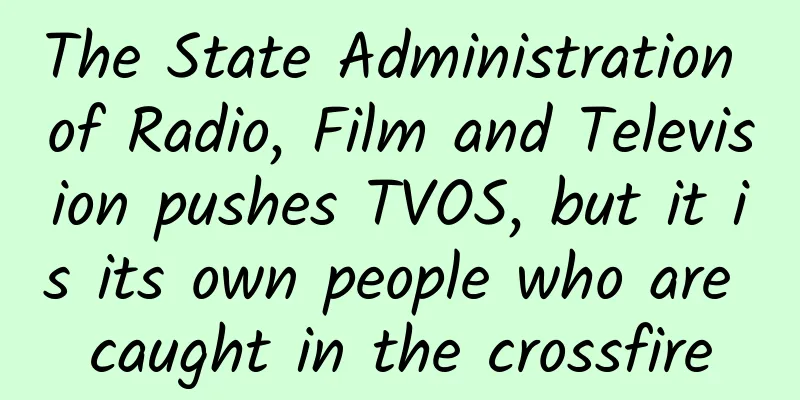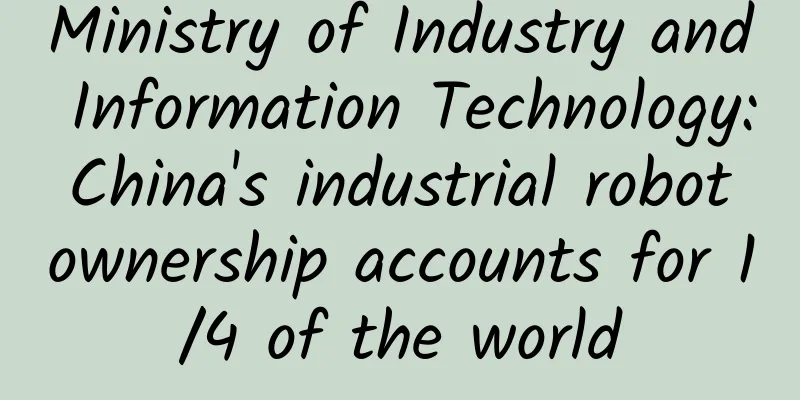|
The cross-screen era is coming. Who will become the next mainstream entrance after the mobile terminal? The answer is undoubtedly Internet TV (OTT for short).
With the influx of Internet technology companies and broadcasting giants such as Alibaba, Tencent, LeTV, Xiaomi, BesTV, Mango TV, and Wasu Media, the industry has been increasingly attracted to investments in the OTT TV ecosystem, such as copyright procurement, hardware subsidies, and cooperation with broadcast control licensees. However, the hottest topic right now is probably not these, but the attention aroused by the State Administration of Radio, Film, and Television's promotion of the TVOS operating system.
According to the People's Post and Telecommunications News, the State Administration of Radio, Film and Television recently issued a notice to expand the pilot scope of the TVOS smart TV operating system among cable operators. This means that in the future, OTT set-top boxes and other terminals launched by cable operators in various regions can only install and use TVOS1.0, and no other operating systems may be installed.
It is generally believed in the industry that the operating system is extremely important for OTT TVs because it directly affects the boot format of the UI interface, the broadcasting of film and television content, and the download rights of many applications. These are the most important core of an OTT TV and are related to the so-called OTT ecosystem.
"It is not clear at present how the General Administration intends to promote it. Those who install first will definitely be restricted first. This is not beneficial for radio and television enterprises that are in market competition with Internet companies." A person from a radio and television enterprise expressed his opinion.
What is even more interesting is that the news of "TVOS expanding the scope of the pilot program" did not come from the State Administration of Radio, Film and Television, which controls all media channels, but from the People's Post and Telecommunications News under the Ministry of Industry and Information Technology. Considering the game between the State Administration of Radio, Film and Television and the Ministry of Industry and Information Technology in the era of three-network integration, the "connotation" of this is for everyone to appreciate.
TVOS promotion has not yet entered the "deep water zone"
In the current market, almost every company engaged in OTT TV business has a set of self-developed operating systems, such as Alibaba's Yun OS, Suning PPTV's PPOS, and BesTV, Mango TV, and LeTV. Almost more than 90% of the operating systems on the market are developed based on Android.
Alibaba's Yun OS is not only used on its own Tmall Magic Box, but also lent to Whaley Technology founded by Li Ruigang. The same is true for Suning's PPOS, which is not only used by PPTV smart TVs, but also by some other smart TV manufacturers.
Wu Chunyong, a broadcasting and television industry research expert, said: "Previously, every larger company with OTT business had its own operating system, but we can regard these as 'corporate standards', and TVOS looks like it may become an 'industry standard'."
In fact, there was no so-called operating system before the emergence of Internet TV, because TV sets at that time could not be connected to the Internet. After connecting to the cable, the most they could do was live broadcast and on-demand. Before June and July 2014, the OTT TV industry was in a state of wild growth. After that, under the tightening of the General Administration's policies, the OTT TV industry was under unprecedented strict management, and TVOS began to enter the industry's sight.
On June 5, 2014, at the Beijing International Television Technology Seminar, Wang Xiaojie, Director of the Science and Technology Department of the State Administration of Radio, Film and Television, said that the main purpose of developing TVOS 1.0 is to achieve "manageable and controllable" smart TV terminals from content to applications through this system and a unified application store.
"Safety" is the biggest reason why TVOS was given the right to be born. At present, the supervision power of Chinese Internet websites lies in the hands of the Cyberspace Administration of China, and smart TVs also need supervision after they can access the Internet, while the rights of radio and television are undoubtedly in the hands of the General Administration. Wang Xiaojie said before:
"Both Android and iOS have 'backdoors'. my country does not allow unsafe or untrustworthy content to appear on TV. With our own smart TV operating system, we can achieve 'management and control'."
In simple terms, the TVOS operating system has technical restrictions from the bottom up. Users cannot obtain root permissions, cannot install third-party software on their own, cannot flash the device, and cannot watch some free or banned content over the firewall. So how much appeal does such an OTT TV have? The industry is pessimistic.
From the perspective of "security", it is not just a matter for broadcasting and television companies. As long as technology companies such as Xiaomi, LeTV, and Alibaba continue to engage in OTT TV business in the future, they will also be involved in the topic of "security". So will TVOS be promoted to all OTT companies? We still need to wait and see, or it may just be a matter of time.
At present, the promotion path of the General Administration is to "cross the river by feeling the stones" step by step, and the scope of the pilot is constantly expanding. At the beginning, TVOS was described as a "non-mandatory industry measure"; soon after, the General Administration required Jiangsu Cable and Shanghai Oriental Cable, two cable TV operators, to undertake the pilot promotion task of 500,000 sets respectively; now, the General Administration has further required the scope of the pilot to be expanded to cable operators across the country. The meaning of "mandatory" has begun to emerge.
However, it can be judged at present that the General Administration's promotion of TVOS has not yet entered the "deep water zone", because the watershed of whether TVOS can be accepted by the entire country and the entire industry lies in whether it can be accepted and installed by the seven major broadcast control license holders and technology companies such as Alibaba, LeTV, and Xiaomi.
The radio and television system may be the first to be hit
Wu Chunyong believes that if the Administration is determined to promote the policy to all OTT TV service providers (including the seven major licensees and Internet companies), it will inevitably cause a significant shock to the industry. "There will definitely be resistance, but it is hard to say how big the shock will be."
First of all, there is the compatibility issue at the technical level. Although TVOS1.0 is said to have taken into account the technologies of existing operating systems, such as Linux and Android, in reality, some industry insiders believe that there are great challenges in the compatibility between systems, and the current OTT TV operating systems of major manufacturers are all developed based on Android. It is precisely because of the openness of the Android operating system that users can download applications on their TVs by themselves, and the document stipulated by the Radio and Television Administration that "Internet TV prohibits live broadcasts" has become a dead letter.
"If the General Administration further expands the scope of promotion of the TVOS system, it will depend on the attitudes of the seven major licensees. Companies like Mango TV, BesTV, and Wasu have all invested heavily in OTT TV and are currently competing with Internet companies. Whoever uses TVOS first will have many more restrictions, and the promotion will inevitably encounter great resistance," said a person in the radio and television industry.
For the General Administration, cable TV operators and the seven major broadcast control license holders are the “own sons” of the radio and television system. If the “own sons” reject your system, why should people from Internet companies accept TVOS?
Another way is to develop an operating system that everyone can accept, but this seems to be more difficult. Among the 15 units involved in the development of TVOS 1.0, in addition to the three research units of the Chinese Academy of Sciences, this industry chain brings together terminal equipment manufacturers represented by Changhong Network and Tongzhou Electronics, cable operators represented by Oriental Cable and Jiangsu Cable, broadcast control license holders represented by Wasu Media, and Liantong Network, which has been engaged in the development of intelligent operating systems.
In addition, it also includes companies such as Digital Video and Shenzhen Zhuozhuang, which are engaged in digital TV software and hardware research and development and services, as well as the Next Generation Broadcasting and Television Network Application Laboratory Co., Ltd. that meets the needs of three-network integration, and the participation of communications service provider ZTE.
The development of TVOS 2.0 is said to be nearing completion. Some media reported that Huawei's internal engineers are responsible for the main development work. TVOS 2.0 will be launched in June next year, and the TV shopping mall in TVOS 2.0 will be developed by Alibaba. In addition, the outside world does not know the list of other developers of TVOS 2.0.
At present, the General Administration has no definite timetable for the promotion of the TVOS system, nor has it made clear how to punish violators. This seems to indicate that the General Administration is actually certain about the market's doubts, and still needs to wait for the right time.
Another thing that needs to be considered is the attitude of the Ministry of Industry and Information Technology. As the traditional setter of television standards, it now has a new "peer" around it. I wonder if this is an important reason why People's Post and Telecommunications is keen to report on the General Administration's promotion of TVOS.
As a winner of Toutiao's Qingyun Plan and Baijiahao's Bai+ Plan, the 2019 Baidu Digital Author of the Year, the Baijiahao's Most Popular Author in the Technology Field, the 2019 Sogou Technology and Culture Author, and the 2021 Baijiahao Quarterly Influential Creator, he has won many awards, including the 2013 Sohu Best Industry Media Person, the 2015 China New Media Entrepreneurship Competition Beijing Third Place, the 2015 Guangmang Experience Award, the 2015 China New Media Entrepreneurship Competition Finals Third Place, and the 2018 Baidu Dynamic Annual Powerful Celebrity. |










